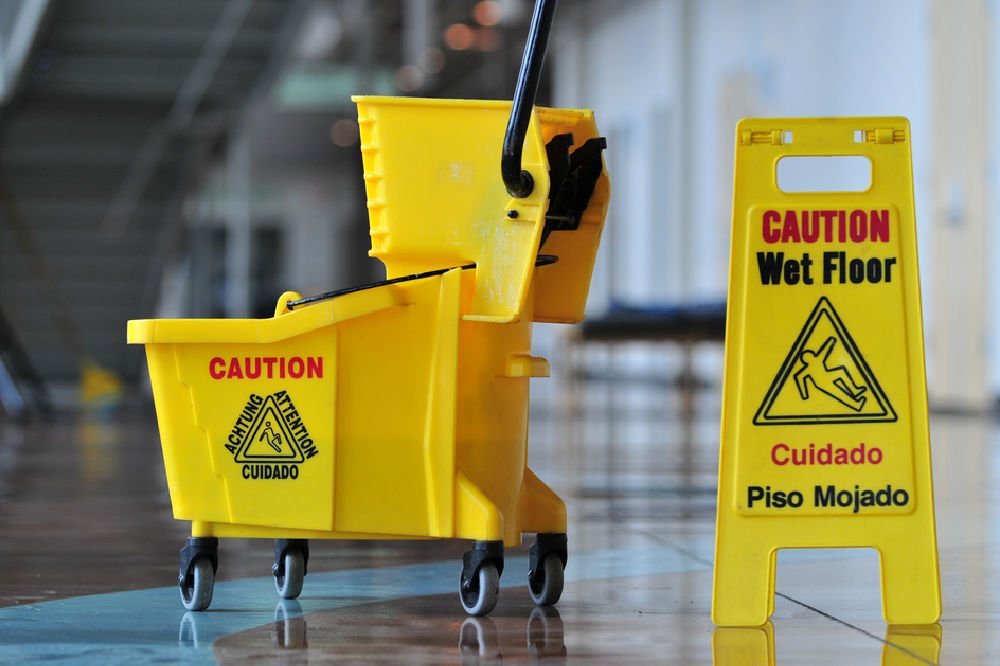When you set foot on someone’s property, you deserve to be in a safe place without fear of harm. Indiana property owners have a legal duty to keep areas safe for others.
Our state’s property owner liability law holds negligent owners responsible for others being injured on their premises, including inside buildings or on land they own. It’s unlawful to present an unreasonable risk of someone being hurt due to dangerous conditions.
If you’re hurt on someone’s property, you may be able to hold them responsible for your medical bills and other damages. However, a notable exception involves Indiana’s open and obvious doctrine.
What Is Indiana’s Open and Obvious Doctrine?
Property owners sometimes use the open and obvious doctrine as a defense against premises liability. If the area where the injury occurred has obviously risky and well-marked conditions, there’s a chance the property owner won’t be held liable.
For example, consider a processing facility with water sprayers cleansing goods. If large signs are posted throughout the premises that say “CAUTION: WET FLOORS,” it would be difficult to hold the property owner responsible for a slip-and-fall accident.
As its name implies, the open and obvious doctrine usually only applies when the conditions are clearly apparent. The courts also consider the surrounding conditions like handrails, flooring, lighting, safety features, and whether the dangerous conditions at the time of the injury were truly open and obvious to the average person.
How Will This Impact My Indiana Slip and Fall Case?
While a property owner isn’t required to provide a 100% guarantee of your safety on their property, they are expected to take reasonable care to maintain safe conditions. Your slip and fall injury could indicate that they failed to meet this standard of care.
To make your case, you’ll need to gather evidence that you were injured due to a foreseeable hazard that the property owner knew or should have known about. You’ll also need to show that your injury was directly due to an incident on their property and did not arise from some other cause.
It’s a good idea to look into whether the property owner has been visiting and inspecting their property regularly or has hired someone to do so on their behalf. Failure to inspect a property for dangerous conditions is an indication that the property owner neglected to meet the standard of reasonable care.
If you intend to bring a case against the property owner, don’t wait too long. Under Indiana Code section 34-11-2-4, you have just two years from the date of the incident. When the injured person is under age 18, mentally incapacitated, or dealing with a property owner who’s hiding their identity, there may be an extension of this deadline.
Your case could also be affected by Indiana’s status as a modified comparative fault state, also known as using the comparative contributory negligence rule. Injured people can only recover damages when they are less than 51% at fault. But the good news is that even if you are slightly at fault, you can still claim a lower amount of money that helps cover your costs.
From the property owner’s side, the cost of these claims is usually covered by having property owner liability insurance. Most of these cases never make it to court and are handled in out-of-court arrangements. If it does go to court, an owner who fails to have adequate insurance can be ordered to cover your costs personally.
The property owner may or may not choose to hire a property owner liability lawyer to represent them. Either way, it’s in your best interests to hire an experienced lawyer to protect your rights and explain your options for compensation.
What Types of Compensation Can I Receive?
Like other types of personal injury cases, slip and fall accidents can be life-altering. Victims of slip and fall injuries are eligible for both economic and non-economic damages. Your injury may prevent you from returning to work in a regular capacity, from being able to enjoy particular activities, and even from being able to care for yourself. Compensation in a slip and fall accident case can include:
- Loss of current and future income
- Loss of enjoyment of life
- Pain and suffering
- Emotional distress
- Medical bills and copays such as:
- Prescription medication costs
- Physical therapy
- Medical equipment
- Transportation costs
Every penny counts when you are injured due to the negligence of a property owner. Money cannot return your life to the way it was before your accident, but it can help you find your new normal and adapt to a comfortable life again.
Slip and Fall Injuries? Contact Crossen Law Firm
If you were injured on someone’s property, contact Crossen Law Firm as soon as possible. We’ll help you investigate the circumstances of your personal injury and determine how to hold the proper person accountable.
Contact us at 317-401-8626 to learn more about your legal options and whether the open and obvious doctrine applies to your case. We’ll offer you a free consultation. This minimizes your hassle during a time in your life when you’re already injured and facing the challenge of going up against a property owner.
We have extensive experience with Indiana slip-and-fall cases and premises liability cases. We care about helping you recover from your accident, and we want to help you secure the compensation you deserve.

 317-401-8626
317-401-8626 
.jpg)